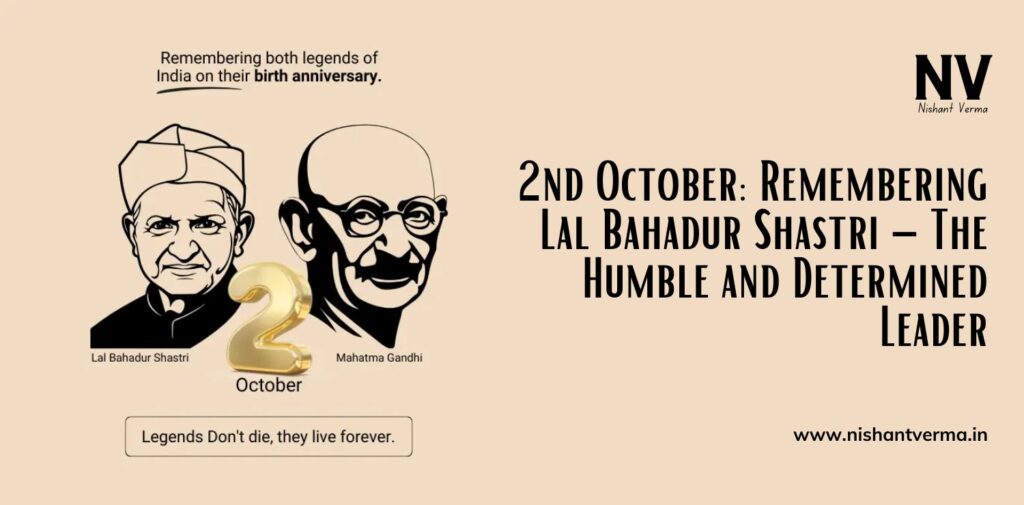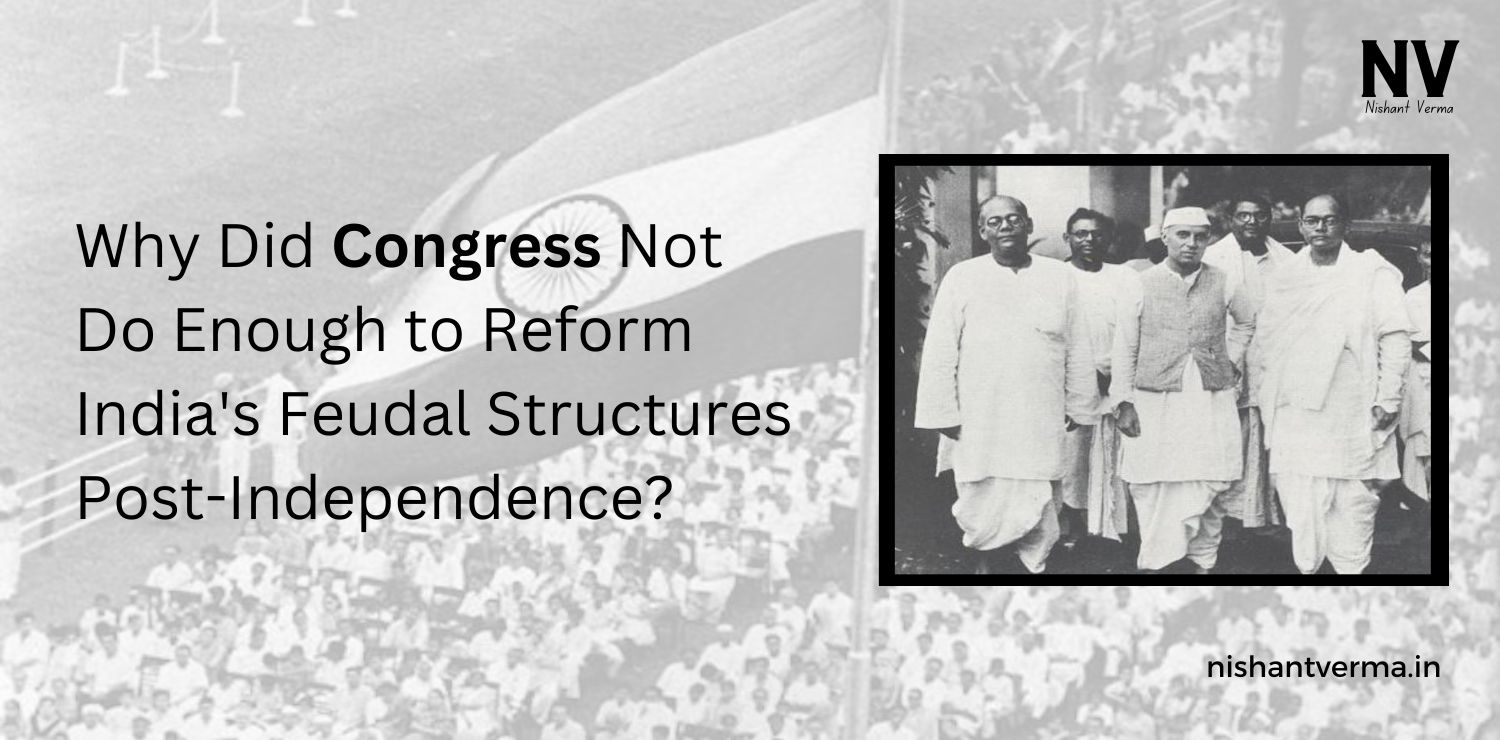2nd October holds a special place in the heart of every Indian. While the day is widely known as Gandhi Jayanti, marking the birth anniversary of Mahatma Gandhi, it also commemorates another great leader of India—Lal Bahadur Shastri. Born on 2nd October 1904, Lal Bahadur Shastri served as the second Prime Minister of independent India. His tenure was brief but impactful, leaving behind a legacy of humility, simplicity, and determination.
Early Life and Humble Beginnings
Lal Bahadur Shastri was born in Mughalsarai, a small town near Varanasi in Uttar Pradesh. His father, Sharada Prasad Srivastava, was a school teacher who passed away when Shastri was just a year old. His mother, Ramdulari Devi, raised him with limited resources, teaching him the values of honesty, discipline, and self-respect.
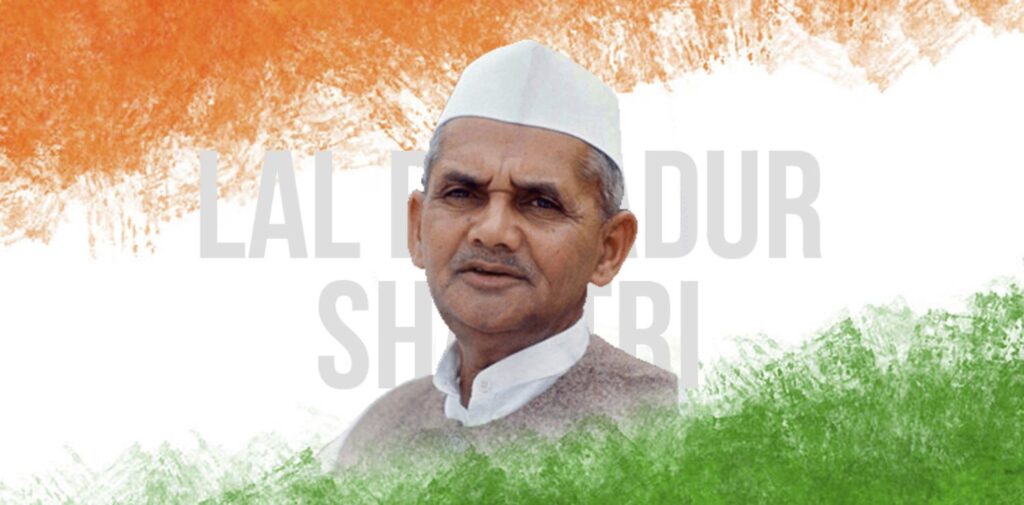
The young Shastri faced many hardships but never gave up. Despite financial constraints, he managed to complete his education by walking miles to reach school and studying under streetlights. This tough upbringing shaped him into a leader who could connect with the common people of India.
A Journey in Public Service
Shastri’s interest in the freedom movement was sparked at a young age. Inspired by Mahatma Gandhi and his principles of non-violence and self-reliance, Shastri joined the Indian independence struggle. In 1921, he participated in the non-cooperation movement, boycotting British goods and institutions. This was the beginning of his lifelong dedication to public service.
During the freedom struggle, he was jailed several times, but his resolve remained unshaken. He actively participated in the Salt Satyagraha and the Quit India Movement, playing an instrumental role in mobilizing people against British rule. His sacrifices during the freedom struggle earned him respect and admiration from the masses.
Political Career Post-Independence
After India gained independence in 1947, Lal Bahadur Shastri took on various roles in the newly formed government. He served as the Minister of Railways, Minister of Transport, and Minister of Home Affairs under the leadership of Jawaharlal Nehru. Shastri’s governance style was marked by efficiency, modesty, and a deep sense of responsibility towards the nation.
As the Minister of Railways, Shastri accepted moral responsibility for a train accident in Tamil Nadu and resigned from his post. This act of accountability set a precedent in Indian politics and displayed his integrity and ethical values.
Becoming the Second Prime Minister of India
After the death of Jawaharlal Nehru in 1964, Lal Bahadur Shastri was unanimously chosen as the Prime Minister of India. He stepped into this role during a challenging time when the nation was facing multiple issues, including food shortages and external aggression.
Despite his soft-spoken and humble demeanor, Shastri was a man of strong will and determination. His leadership during the Indo-Pak war of 1965 is a testimony to his courage and resolve. It was during this period that he coined the iconic slogan “Jai Jawan, Jai Kisan,” which highlighted the importance of soldiers and farmers in nation-building.
Jai Jawan, Jai Kisan: The War and the Green Revolution
The slogan “Jai Jawan, Jai Kisan” is perhaps Shastri’s most lasting contribution. India was in a state of conflict with Pakistan in 1965, and at the same time, it was grappling with food shortages and a severe economic crisis. Shastri recognized the importance of self-reliance in food production and emphasized the need to support farmers.
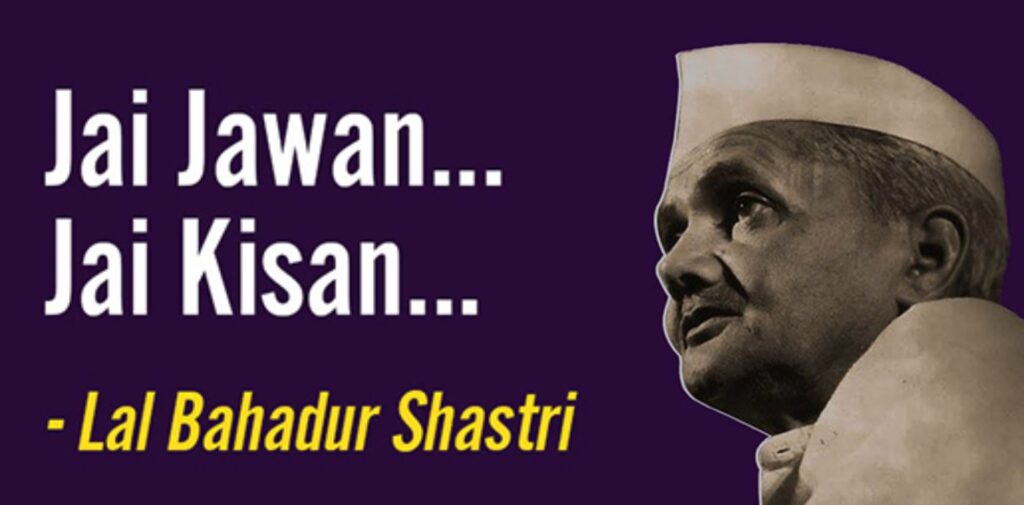
Under his leadership, the Green Revolution was introduced to boost agricultural productivity. This not only helped in improving the food situation in the country but also set the foundation for India’s future agricultural success.
On the military front, Shastri showed immense courage. He stood firmly by the Indian Army during the 1965 war, boosting the morale of soldiers and demonstrating India’s strength and resilience. The war ended with the signing of the Tashkent Agreement on 10th January 1966, but unfortunately, it was also the day Shastri took his last breath under mysterious circumstances.
Shastri’s Simplicity and Humility
One of the most remarkable aspects of Lal Bahadur Shastri’s life was his simplicity. Despite holding the highest office in the country, he remained rooted in his values. He lived in a modest house, used public transport, and maintained a lifestyle that was a reflection of his belief in austerity and service to the nation.
There are numerous anecdotes that highlight Shastri’s humility. Once, when his family needed a car, Shastri decided to buy a Fiat car on loan instead of asking for it from the government. This act is often cited as an example of his ethical conduct and humility.
Shastri’s Legacy and Inspiration for Future Generations
Lal Bahadur Shastri may not have had a long tenure as Prime Minister, but his contributions to the nation were immense. He showed that a leader does not need to be loud or authoritative to be effective. Instead, Shastri led by example, demonstrating that honesty, determination, and a strong will are the true qualities of a great leader.
He left behind a legacy that continues to inspire leaders and citizens alike. His belief in self-reliance, national pride, and service to the nation are values that remain relevant even today. While his mysterious death in Tashkent cut short a promising career, his life and principles remain etched in the hearts of millions of Indians.
Remembering Shastri on 2nd October
As we celebrate 2nd October each year, it is essential to remember and honor the contributions of Lal Bahadur Shastri along with Mahatma Gandhi. Shastri’s life is a testament to the fact that greatness is not about power or position but about selfless service, humility, and a deep commitment to the welfare of the nation.
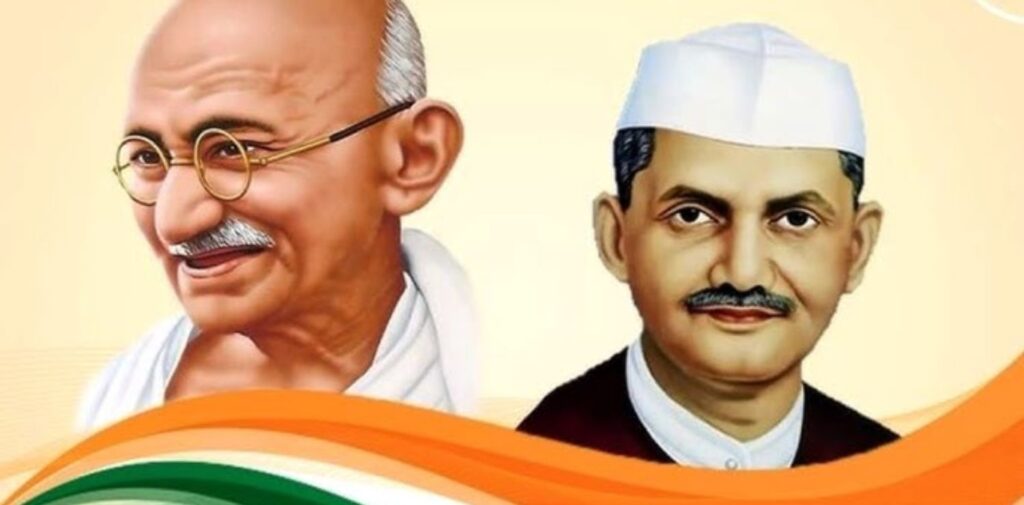
Let us take inspiration from his life and strive to build a nation that is strong, self-reliant, and united, just as Lal Bahadur Shastri envisioned.

